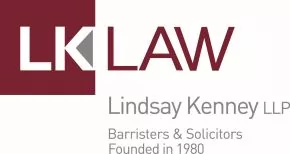What is fair in a contract? Accepting certain terms may have unintended consequences and must be considered carefully. Learn more about managing the risks and rewards of a contractual agreement.
Full transcript:
I’m often asked by clients, “should I agree to this term in the contract?” This is often a prelude to a discussion of what’s fair in the contract. The answer depends on the exact circumstances, but the analysis is always the same. A contract is an agreement between two persons that is enforceable at law. It is really no more than the allocation of risks and rewards among the parties. The balance of risks and rewards is a business decision, not a legal decision. But some risks may have unintended consequences and must be considered carefully. Remember that performance of contracts is judged strictly.
Now sometimes you’ll be asked to guarantee the outcome. Engineers and architects are normally retained to provide professional services to meet the local or national standard of performance. If there are issues, the performance will be judged against what reasonable architects and engineers would have done in respect of those standards. But some clients want terms that suggest a virtual guarantee of the outcome. For example, they may ask that you perform to the highest standards of practice. World leading experts usually receive world leading remuneration. By definition, very few can meet this standard. Performance to the satisfaction of client, or in the client's sole judgement, is another term. Subjecting yourself to the whims of a client is risky. Being asked to certify drawings are complete and correct. While you should be prepared to correct drawings that have errors, you should not expose yourself to damages for breach of such a certification. You may be asked to certify compliance with all laws, codes, and regulations. It's unlikely that you'll even know of all laws, codes, and regulations which might apply. Some might even conflict. Certifying compliance might actually be a legal decision.
Now, avoid words like certify, warrant, guarantee. Nothing you do is ever going to be perfect, so why accept responsibility for perfection. Sometimes you're asked to guarantee the work of others. Now of course you should stand behind your work and correct it if necessary, but you take a large risk by agreeing to stand behind the work of others. By for example, accepting responsibility for site conditions, which may contain hidden issues. Even a thorough investigation may not reveal everything, so why accept responsibility for facts that you can't possibly know. If the client wants greater assurance, it has to pay for that.
Accepting responsibility for information provided by others. The best you can do is use information on the assumption that it is correct. If the information is wrong, why would you want to be responsible for it? Accepting responsibility for a contractor's drawings and codes. The best that you can normally do is review a contractor's work for general compliance. If the contractor didn't comply, it, not you, should be responsible. Accepting responsibility for sub-consultant's performance. If a sub-consultant makes an error in performing part of the work you agreed to do, does it have the wherewithal to take responsibility for that? If a client retains specialist consultants, why should their errors be your problem? Sometimes you're asked for a hold harmless. The client is entitled to your performance, or damages if you breached, or are negligent. British Columbia law provides for payment of costs to successful litigants for breach or negligence. Hold harmless, or indemnity, goes beyond that to include full recovery of legal costs and all other damages. Query whether your professional liability insurance is even going to cover this. Sometimes clients want to be protected from any act, or all claims arising from the project. This may well be more than just your breach, or your negligence, or anything within your control. If you're asked to assume your clients defence, who's going to control the defence.
Now in summary, contracts are about the allocation of risks. You'll appreciate that the client wants to keep it's risks to a minimum, and I've discussed some of the ways that it may ask for this. Is it worth it to you to bet the company on every job?
About Mackrell International – Canada - Lindsay Kenney LLP is a full service business law firm with offices in Vancouver and Langley, BC and a member of Mackrell International. Mackrell International – Canada is comprised of four independent law firms in Alberta, British Columbia, Ontario and Quebec. Each firm is regionally based and well-connected in our communities, an advantage shared with our clients. With close relations amongst our Canadian member firms, we are committed to working with clients who have legal needs in multiple jurisdictions within Canada.
This article is intended to be an overview and is for informational purposes only.

